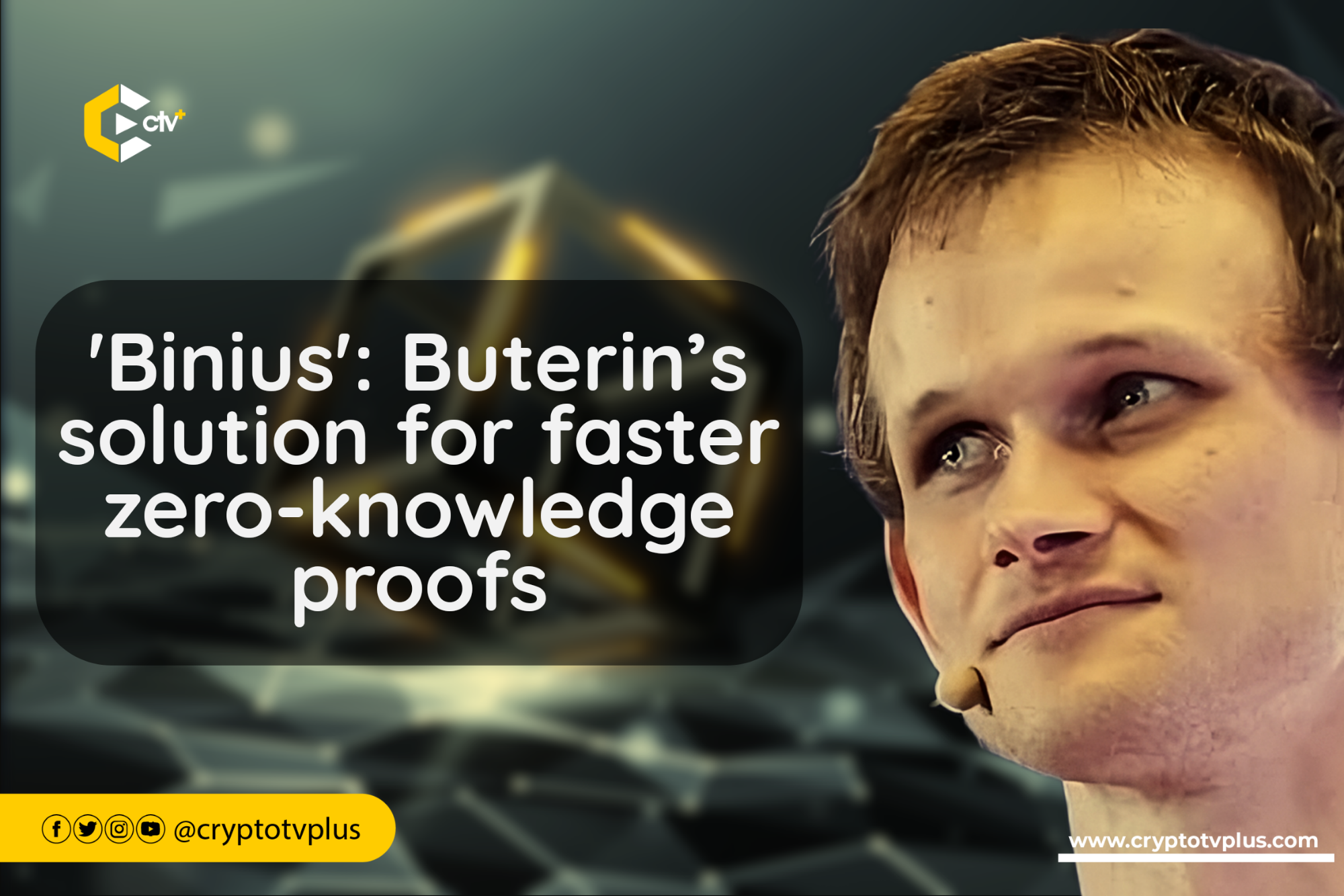News
‘Binius’: Buterin’s solution for faster zero-knowledge proofs

The co-founder of Ethereum expects binary-field-based proving methods to make significant progress in the coming months.
Vitalik Buterin, the co-founder of Ethereum, discussed a new system for cryptographic proof that aims to increase the efficiency of zero-knowledge proofs.
In an April 29 blog post, Buterin outlined a system for creating highly efficient cryptographic proofs in binary fields, called “Binius.” This system seeks to deliver considerable performance improvements over conventional proof methods like zk-SNARKs.
Binius boosts efficiency by executing calculations directly on individual binary bits—zeros and ones—instead of using larger numbers.
Buterin created this system because conventional cryptographic proof systems like SNARKs (Succinct Non-Interactive Argument of Knowledge) and STARKs (Scalable Transparent Argument of Knowledge) work with larger numeric values, such as 64-bit or 256-bit integers.
Although the underlying data often contains small values like counters, indices, and boolean flags, Buterin noted that Binius can handle this data more efficiently by working directly with bits.
Buterin explained that the new proving system organizes data into a multidimensional “hypercube” of bits and uses binary “finite fields” to allow for efficient arithmetic operations on bits and bit sequences.
The system employs a specialized encoding and decoding technique to transform bit-level data into a format suitable for “polynomial” operations and Merkle proofs while maintaining the efficiency advantages of binary processing.
The binary-based system significantly enhances the foundational arithmetic used in cryptographic proof systems, enabling intricate crypto applications to operate more efficiently and scale more effectively.
Polynomials play a key role in zk-proofs because they encode data and calculations in a way that allows for proof verification without revealing the underlying information, leading to the term “zero knowledge.”
Buterin showcased the Binius protocol using complex mathematics, which falls outside the scope of this article, to demonstrate how it encodes data, generates proofs, and allows verifiers to efficiently validate them.
Cryptographers Benjamin E. Diamond and Jim Posen introduced this concept in their 2023 whitepaper, “Succinct Arguments over Towers of Binary Fields.”
In general, Binius offers major performance boosts compared to traditional proof systems, especially when it comes to computations with smaller values and bit-level processes.
“I expect many more improvements in binary-field-based proving techniques in the months ahead,” Buterin concluded.
Read also: Vitalik Buterin on tackling quantum threats in blockchains

























Pingback: Bitcoin Miners steady despite sharp revenue decline | CryptoTvplus - The Leading Blockchain Media Firm